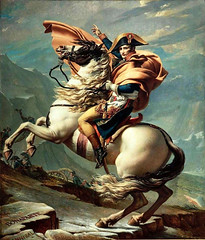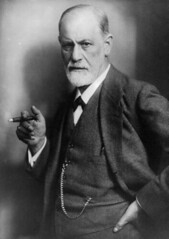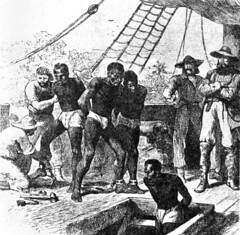AP World History - Period 5 Flashcards
Terms : Hide Images [1]
| 13975116144 | abolitionist movement | An international movement that between approximately 1780 and 1890 succeeded in condemning slavery as morally repugnant and abolishing it in much of the world; the movement was especially prominent in Britain and the United States. |  | 0 |
| 13975116145 | Creoles | Native-born elites in the Spanish colonies. |  | 1 |
| 13975116146 | Declaration of the Rights of Man and Citizen | Document drawn up by the French National Assembly in 1789 that proclaimed the equal rights of all men; the declaration ideologically launched the French Revolution. |  | 2 |
| 13975116147 | Declaration of the Rights of Woman | Short work written by the French feminist Olympe de Gouges in 1791 that was modeled on the Declaration of the Rights of Man and Citizen and that made the argument that the equality proclaimed by the French revolutionaries must also include women. | 3 | |
| 13975116148 | Estates-General | French representative assembly called into session by Louis XVI to address pressing problems and out of which the French Revolution emerged; the three estates were the clergy, the nobility, and the commoners. | 4 | |
| 13975116149 | Freetown | West African settlement in what is now Sierra Leone at which British naval commanders freed Africans they rescued from illegal slave ships. | 5 | |
| 13975116150 | French Revolution | Massive dislocation of French society (1789-1815) that overthrew the monarchy, destroyed most of the French aristocracy, and launched radical reforms of society that were lost again, though only in part, under Napoleon's imperial rule and after the restoration of the monarchy. |  | 6 |
| 13975116151 | gens de couleur libres | Literally, "free people of color"; term used to describe freed slaves and people of mixed racial background in Saint Domingue on the eve of the Haitian Revolution. | 7 | |
| 13975116152 | Haiti | Name that revolutionaries gave to the former French colony of Saint Domingue; the term means "mountainous" or "rugged" in the Taino language. |  | 8 |
| 13975116153 | Haitian Revolution | The only fully successful slave rebellion in world history; the uprising in the French Caribbean colony of Saint Domingue (later renamed Haiti) was sparked by the French Revolution and led to the establishment of an independent state after a long and bloody war (1791-1804). | 9 | |
| 13975116154 | Hidalgo-Morelos Revolution | Socially radical peasant insurrection that began in Mexico in 1810 and that was led by the priests | 10 | |
| 13975116155 | Latin American Revolutions | Series of risings in the Spanish colonies of Latin America (1810-1826) that established the independence of new states from Spanish rule but that for the most part retained the privileges of the elites despite efforts at more radical social rebellion by the lower classes. | 11 | |
| 13975116156 | Toussaint L'Ouverture | First leader of the Haitian Revolution, a former slave (1743-1803) who wrote the first constitution of Haiti and served as the first governor of the newly independent state. |  | 12 |
| 13975116157 | Napoleon Bonaparte | French head of state from 1799 until his abdication in 1814 (and again briefly in 1815); preserved much of the French Revolution under an autocratic system and was responsible for the spread of revolutionary ideals through his conquest of much of Europe. |  | 13 |
| 13975116158 | Nation | A group of people who have a sense of common identity and destiny, thanks to ties of blood, culture, language, or common experience. | 14 | |
| 13975116159 | Nationalism | The focusing of citizens' loyalty on the notion that they are part of a "nation" with a unique culture, territory, and destiny; first became a prominent element of political culture in the nineteenth century. | 15 | |
| 13975116160 | American Revolution | Successful rebellion conducted by the colonists of parts of North America (not Canada) against British rule (1775-1787); a conservative revolution whose success assured property rights but established republican government in place of monarchy. | 16 | |
| 13975116161 | Petit Blancs | The "little" (or poor) white population of Saint Domingue, which played a significant role in the Haitian Revolution. | 17 | |
| 13975116162 | Seneca Falls Conference | The first organized women's rights conference | 18 | |
| 13975116163 | Elizabeth Cady Stanton | Leading figure of the early women's rights movement in the United States (1815-1902). | 19 | |
| 13975116164 | the Reign of Terror | Term used to describe the revolutionary violence in France in 1793-1794, when radicals under the leadership of Maximilien Robespierre executed tens of thousands of people deemed enemies of the revolution. |  | 20 |
| 13975116165 | Third Estate | In prerevolutionary France, the term used for the 98 percent of the population that was neither clerical nor noble, and for their representatives at the Estates General; in 1789, it declared itself a National Assembly and launched the French Revolution. | 21 | |
| 13975116166 | Tupac Amaru | The last Inca emperor; in the 1780s, a Native American rebellion against Spanish control of Peru took place in his name. | 22 | |
| 13975116167 | Bourgeoisie | Term that Karl Marx used to describe the owners of industrial capital; originally meant "townspeople." |  | 23 |
| 13975116168 | British Royal Society | Association of scientists established in England in 1660 that was dedicated to the promotion of "useful knowledge." | 24 | |
| 13975116169 | Crimean War | Major international conflict (1854-1856) in which British and French forces defeated Russia; the defeat prompted reforms within Russia. |  | 25 |
| 13975116170 | Sigmund Freud | Austrian doctor and the father of modern psychoanalysis (1856-1939); his theories about the operation of the human mind and emotions remain influential today |  | 26 |
| 13975116171 | Labour Party | British working-class political party established in the 1890s and dedicated to reforms and a peaceful transition to socialism, in time providing a viable alternative to the revolutionary emphasis of Marxism. | 27 | |
| 13975116172 | Karl Marx | German expatriate in England who advocated working-class revolution as the key to creating an ideal communist future. | 28 | |
| 13975116173 | Middle class values | Belief system that developed in Britain in the nineteenth century; it emphasized thrift, hard work, rigid moral behavior, cleanliness, and "respectability." | 29 | |
| 13975116174 | Robert Owens | Socialist thinker and wealthy mill owner (1771-1858) who created an ideal industrial community at New Lanark, Scotland. | 30 | |
| 13975116175 | Peter the Great | Tsar of Russia (r. 1689-1725) who attempted a massive reform of Russian society in an effort to catch up with the states of Western Europe. | 31 | |
| 13975116176 | Populism | Late-nineteenth-century American political movement that denounced corporate interests of all kinds. | 32 | |
| 13975116177 | Proletariat | Term that Karl Marx used to describe the industrial working class; originally used in ancient Rome to describe the poorest part of the urban population. | 33 | |
| 13975116178 | Steam engine | Mechanical device in which the steam from heated water builds up pressure to drive a piston, rather than relying on human or animal muscle power; the introduction of this item allowed a hitherto unimagined increase in productivity and made the Industrial Revolution possible. |  | 34 |
| 13975116179 | Boxer Rebellion | Rising of Chinese militia organizations in 1900 in which large numbers of Europeans and Chinese Christians were killed |  | 35 |
| 13975116180 | Daimyo | Feudal lords of Japan who retained substantial autonomy under the Tokugawa shogunate and only lost their social preeminence in the Meiji restoration. |  | 36 |
| 13975116181 | Meiji Restoration | The overthrow of the Tokugawa shogunate of Japan in 1868, restoring power at long last to the emperor |  | 37 |
| 13975116182 | Matthew Perry | U.S. navy commodore who in 1853 presented the ultimatum that led Japan to open itself to more normal relations with the outside world. |  | 38 |
| 13975116183 | Opium Wars | Two wars fought between Western powers and China (1839-1842 and 1856-1858) after China tried to restrict the importation of foreign goods; China lost both wars and was forced to make major concessions. |  | 39 |
| 13975116184 | Russo-Japanese War | Ending in a Japanese victory, this war established Japan as a formidable military competitor in East Asia and precipitated the Russian Revolution of 1905. |  | 40 |
| 13975116185 | Samurai | Armed retainers of the Japanese feudal lords, famed for their martial skills and loyalty; in the Tokugawa shogunate, they gradually became an administrative elite, but they did not lose their special privileges until the Meiji restoration. |  | 41 |
| 13975116186 | Self-strengthening Movement | China's program of internal reform in the 1860s and 1870s, based on vigorous application of Confucian principles and limited borrowing from the West. | 42 | |
| 13975116187 | The Sick Man of Europe | Western Europe's unkind nickname for the Ottoman Empire in the nineteenth and early twentieth centuries, a name based on the sultans' inability to prevent Western takeover of many regions and to deal with internal problems; it fails to recognize serious reform efforts in the Ottoman state during this period. |  | 43 |
| 13975116188 | Social Darwinism | An application of the concept of "survival of the fittest" to human history in the nineteenth century. |  | 44 |
| 13975116189 | Taiping Uprising | Massive Chinese rebellion that devastated much of the country between 1850 and 1864; it was based on the millenarian teachings of Hong Xiuquan. |  | 45 |
| 13975116190 | Tanzimat Reforms | Important reform measures undertaken in the Ottoman Empire beginning in 1839; the term means "reorganization." |  | 46 |
| 13975116191 | Tokugawa Shogunate | Rulers of Japan from 1600 to 1868. |  | 47 |
| 13975116192 | Unequal treaties | Series of nineteenth-century treaties in which China made major concessions to Western powers. | 48 | |
| 13975116193 | Young Ottomans | Group of would-be reformers in the mid-nineteenth-century Ottoman Empire that included lower-level officials, military officers, and writers; they urged the extension of Westernizing reforms to the political system. | 49 | |
| 13975116194 | Young Turks | Movement of Turkish military and civilian elites that developed ca. 1900, eventually bringing down the Ottoman Empire |  | 50 |
| 13975116195 | Apartheid | Afrikaans term for the system that developed in South Africa of strictly limiting the social and political integration of whites and blacks. |  | 51 |
| 13975116196 | Cash crop agriculture | Agricultural production, often on a large scale, of crops for sale in the market, rather than for consumption by the farmers themselves. |  | 52 |
| 13975116197 | Leopold II | his rule as private owner of the Congo Free State during much of that time is typically held up as the worst abuse of Europe's second wave of colonization, resulting as it did in millions of deaths. |  | 53 |
| 13975116198 | Cultivation System | System of forced labor used in the Netherlands East Indies in the nineteenth century; peasants were required to cultivate at least 20 percent of their land in cash crops such as sugar or coffee for sale at low and fixed prices to government contractors, who then earned enormous profits from further sale of the crops. | 54 | |
| 13975116199 | Indian Rebellion of 1857-1858 | Massive uprising of much of India against British rule; also called the Indian Mutiny or the Sepoy Mutiny from the fact that the rebellion first broke out among Indian troops in British employ. |  | 55 |
| 13975116200 | Scramble for Africa | Name used for the process of the European countries' partition of the continent of Africa between themselves in the period 1875-1900. |  | 56 |
| 13975116201 | Guillotine | defined the reign of terror, its fast-falling blade extinguished life immediately, introduced as a more humane way of beheading (vs. an ax) |  | 57 |
| 13975116202 | Mass Production | The manufacture of many identical products by the division of labor into many small simple tasks. |  | 58 |
| 13975116203 | Steam Ships | technological innovation allowed Europeans to reach distant Asian and African ports quickly and predictably |  | 59 |
| 13975116204 | mercantilism | A set of economic principles based on policies which stress government regulation of economic activities to benefit the home country | 60 | |
| 13975116205 | Capitalism | (1776) , an economic system in which investment in and ownership of the means of production, distribution, and exchange of wealth is made and maintained chiefly by private individuals or corporations. | 61 | |
| 13975116206 | Simon Bolivar | The most important military leader in the struggle for independence in South America; born in Venezuela, he led military forces there and in Colombia, Ecuador, Peru, and Bolivia. |  | 62 |
| 13975116207 | Garibaldi | Leader of the Italian Nationalist Army. He was a bold and visionary leader. He united Southern Italy, also captured Sicily in the 1860's. |  | 63 |
| 13975116208 | Mazzini | Giuseppe Mazzini was the first person that tried to unify all of Italy. He preached a centralized democratic republic based on universal male suffrage and the will of the people. His brand of democratic republicanism seemed too radical for the people. Austria smashed Mazzini's republicanism in 1848. |  | 64 |
| 13975116209 | Count Cavour | Italian statesman from Sardinia who used diplomacy to help achieve unification of Italy. |  | 65 |
| 13975116210 | Pedro I | Son and successor of Joao VI in Brazil, aided in the declaration of Brazilian independence from Portugal in 1822, became constitutional emperor of Brazil |  | 66 |
| 13975116211 | William Wilberforce | He was a highly religious man and a member of the English Parliament who worked tirelessly for the abolition of slavery |  | 67 |
| 13975116212 | Janissary | a soldier in the elite guard of the Ottoman Turks |  | 68 |
| 13975116213 | Muhammad Ali | Albanian soldier in the service of Turkey who was made viceroy of Egypt and took control away from the Ottoman Empire and established Egypt as a modern state (1769-1849). |  | 69 |
| 13975116214 | Tanzimat | 'Restructuring' reforms by the nineteenth-century Ottoman rulers, intended to move civil law away from the control of religious elites and make the military and the bureaucracy more efficient. | 70 | |
| 13975116215 | Extraterritoriality | Foreign residents in a country living under the laws of their native country, disregarding the laws of the host country. 19th/Early 20th Centuries: European and US nationals in certain areas of Chinese and Ottoman cities were granted this right. | 71 | |
| 13975116216 | Canton System | The Canton System (1757-1842) served as a means for China to control trade with the west within its own country by focusing all trade on the southern port of Canton (now Guangzhou). | 72 | |
| 13975116217 | Empress Dowager Cixi | Empress of China and mother of Emperor Guangxi. She put her son under house arrest, supported anti-foreign movements like the so-called Boxers, and resisted reforms of the Chinese government and armed forces. |  | 73 |
| 13975116218 | Palm Oil | A West African tropical product often used to make soap; the British encouraged its cultivation as an alternative to the slave trade. |  | 74 |
| 13975116219 | Emmeline Pankhurst | (1858-1928) British suffragette and founder of the Woman's Social and Political Union. |  | 75 |
| 13975116220 | Emily Davison | Threw herself under the Kings horse at the Derby to draw attention to the women's movement and was killed. | 76 | |
| 13975116221 | Separate Spheres | Nineteenth-century idea in Western societies that men and women, especially of the middle class, should have different roles in society: women as wives, mothers, and homemakers; men as breadwinners and participants in business and politics |  | 77 |
| 13975116222 | Universal Male Suffrage | The extension of the right to vote to all males regardless of social standing or race, whose movement had begun in the early-mid 1800's | 78 | |
| 13975116223 | Ems Telegram | A telegram which the French gave to the Germans in anger over the Succession of the Throne in Spain, but the Germans altered it to look like the French were rude and evil. The French declared war. |  | 79 |
| 13975116224 | free trade imperialism | Economic dominance of a weaker country by a more powerful one, while maintaining the legal independence of a weaker state. In the late 19th cent, this characterized the relationships between Latin American republics and GB/US | 80 |
